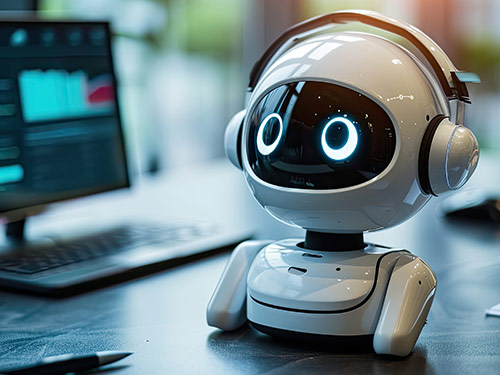AI meeting assistants are packed with powerful features to improve employee productivity and meeting workflows. So, which AI tool is best for your organization?
For many business professionals, opening a weekly calendar app can be fraught with anxiety. Among their concerns: How do they find time for heads-down, productive work with so many meeting blocks? How can they keep track of post-meeting to-dos? What if they join a meeting late or not at all — are they going to miss critical discussions and decisions?
As enterprises look to ease these concerns and address employee experience challenges, they may consider certain technology to improve meeting workflows and outcomes.
In Metrigy research on employee experience conducted in 2022, 55% of 250 companies studied globally had already identified in-meeting assistance for providing summaries and logging action items, notes and decisions to have the highest value among various types of AI-driven video meeting functions. Fast-forward to 2024, and creating meeting summaries has become generative AI’s top use case for employee interactions, with 80% of nearly 700 companies studied globally already using or testing this type of meeting assistance, according to Metrigy’s “AI for Business Success: 2024-25” study.
What to expect in an AI meeting assistant
AI meeting assistants serve many purposes before, during and after meetings. At a base level, using advanced functionality, such as machine learning and automation, AI meeting assistants offload tasks such as scheduling and rescheduling, meeting transcription and translation, notetaking, and creation of meeting recaps and summaries. Knowing AI has their backs, meeting participants can stay focused on the ongoing discussion or presentation and save time by not having to listen to meeting recordings for missed comments. As a result, meeting assistants can improve efficiency, boost productivity, and enable individuals and teams to reap more value from meetings, while, at the same time, making the meeting experience itself more enjoyable for all.
Naturally, beefing up AI meeting assistants has become a priority for meeting app providers, such as Cisco, Google, Microsoft and Zoom, as well as for standalone vendors vying for recognition. Many of these providers have tapped the power of generative AI to give their meeting assistants new and improved capabilities.
Beyond the basics, IT leaders should evaluate AI meeting assistants for their ability to support more advanced features and functionality, such as the following:
Continue reading at techtarget.com.





